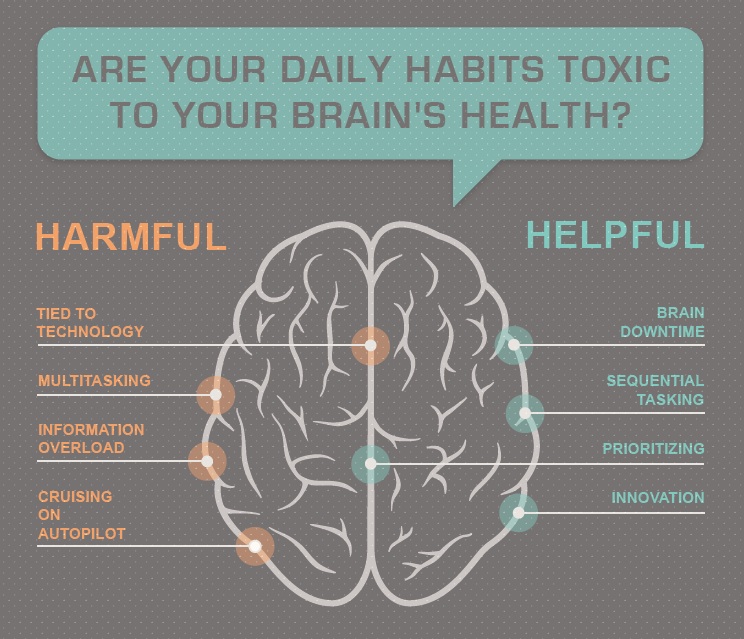Healthy Habits for ADHD Brains: A Guide to Thriving
1. Establishing a Routine
Living with ADHD can be challenging, but establishing a routine can help individuals with ADHD better manage their symptoms. Having a routine can provide structure and predictability, making it easier to stay organized and on track. It can also help reduce stress and anxiety, which are common symptoms of ADHD. When creating a routine, it’s important to set realistic goals and prioritize tasks. Breaking tasks down into smaller, manageable steps can make them feel less overwhelming. Additionally, setting aside time for self-care activities such as exercise, meditation, or hobbies can help individuals with ADHD recharge and stay focused.
2. Eating a Balanced Diet
Diet can play a significant role in managing ADHD symptoms. Eating a balanced diet that includes plenty of fruits, vegetables, whole grains, and lean proteins can help support brain health and improve focus and concentration. Avoiding processed foods, sugary snacks, and excessive caffeine can also help reduce hyperactivity and impulsivity. Some individuals with ADHD may benefit from adding omega-3 fatty acids, magnesium, and zinc to their diet, as these nutrients have been shown to have a positive impact on ADHD symptoms. Staying hydrated and eating regular, nutritious meals can help stabilize mood and energy levels throughout the day.
3. Getting Regular Exercise

Regular exercise is essential for overall health and well-being, but it can be especially beneficial for individuals with ADHD. Exercise has been shown to improve focus, attention, and impulse control in people with ADHD. Engaging in physical activity releases endorphins, which can help regulate mood and reduce stress and anxiety. Incorporating activities such as walking, jogging, yoga, or dancing into a daily routine can help individuals with ADHD stay active and alert. Finding an exercise routine that is enjoyable and sustainable is key to reaping the benefits of physical activity.
4. Practicing Mindfulness and Meditation
Mindfulness and meditation can be powerful tools for managing ADHD symptoms and promoting mental clarity and focus. Practicing mindfulness involves being present in the moment and paying attention to thoughts and feelings without judgment. Meditation can help calm a busy mind and improve self-regulation skills. Taking a few minutes each day to practice deep breathing exercises, guided meditation, or progressive muscle relaxation can help individuals with ADHD reduce impulsivity and increase self-awareness. Mindfulness techniques can also help improve sleep quality and reduce anxiety and depression symptoms.
5. Limiting Screen Time

Excessive screen time can have a negative impact on ADHD symptoms, including increased impulsivity, distractibility, and hyperactivity. Setting limits on screen time and creating tech-free zones in the home can help reduce overstimulation and improve focus. It’s important to establish boundaries around screen use, especially before bedtime, as exposure to blue light from electronic devices can disrupt sleep patterns. Encouraging outdoor activities, reading books, or engaging in creative hobbies can help individuals with ADHD reduce screen time and enhance their overall well-being.
6. Getting Sufficient Sleep
Quality sleep is essential for maintaining optimal brain function and overall health, especially for individuals with ADHD. Lack of sleep can exacerbate symptoms such as impulsivity, inattention, and mood swings. Establishing a consistent bedtime routine and creating a relaxing sleep environment can help improve sleep quality and duration. Avoiding caffeine and stimulating activities before bedtime can help individuals with ADHD unwind and prepare for restful sleep. Practicing relaxation techniques such as deep breathing exercises or listening to calming music can also promote a peaceful night’s sleep.
7. Seeking Support and Therapy

Living with ADHD can be challenging, but seeking support and therapy can help individuals develop coping strategies and enhance their mental health. Therapy can provide a safe space to explore emotions, learn new skills, and improve communication with others. Cognitive-behavioral therapy (CBT) and mindfulness-based techniques have been shown to be effective in managing ADHD symptoms and improving self-regulation. Support groups and online communities can also provide a sense of connection and understanding for individuals with ADHD. Building a strong support network can help individuals with ADHD feel empowered and supported in their journey towards better mental health.
8. Practicing Self-Compassion and Acceptance
Living with ADHD can be challenging, but practicing self-compassion and acceptance can help individuals navigate their unique strengths and challenges. Embracing one’s ADHD diagnosis and recognizing individual differences can promote self-acceptance and personal growth. Setting realistic expectations and celebrating small victories can build self-esteem and resilience. Being kind to oneself, acknowledging feelings of frustration or disappointment, and practicing self-care can help individuals with ADHD cultivate a positive self-image and sense of worth. Remembering that ADHD is a neurodevelopmental disorder and not a personal failing can help individuals approach challenges with compassion and resilience.
Conclusion
In conclusion, adopting healthy habits can help individuals with ADHD thrive and manage their symptoms more effectively. Establishing a routine, eating a balanced diet, getting regular exercise, practicing mindfulness and meditation, limiting screen time, getting sufficient sleep, seeking support and therapy, and practicing self-compassion and acceptance are all essential components of a holistic approach to managing ADHD. By incorporating these healthy habits into daily life, individuals with ADHD can improve their focus, attention, and overall well-being. Remember that everyone’s journey with ADHD is unique, and it’s important to find what works best for you. Embrace your strengths, seek support when needed, and prioritize self-care to lead a fulfilling and purposeful life with ADHD.
